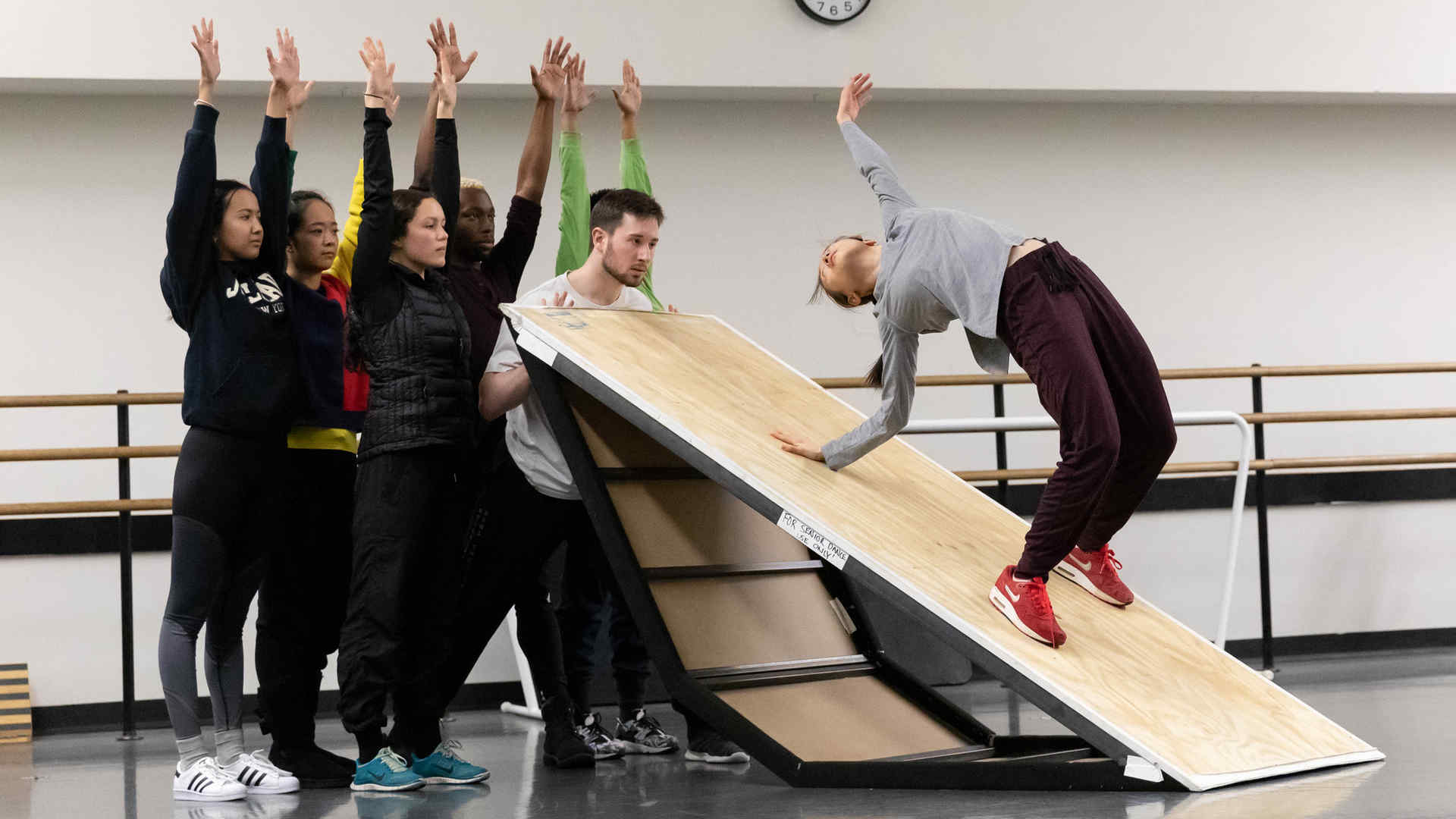
In the spirit of the collaboration that makes Senior Production happen, we’ve created a collage of responses five of the students—a mix of third-years and fourth-years—gave us about the experience.
Senior Production
Benjamin Simoens: Senior Production is both a yearlong class taught by Risa Steinberg and guests and a show in late April that’s made up of seven world premieres by fourth-year choreographers with tech by the juniors and performances by both classes. It’s all-encompassing and fascinating to be a part of.
Preparing to be the creative team
Naya Lovell: Senior Pro is unlike any other performance opportunity in the dance division. As third-year dancers, we’re required to take a [yearlong] Stagecraft class, in which we spend the majority of our time inside the Willson Theater gaining insights into the job of a technician. Kalyn Berg: So not only do we get to work with a fourth-year choreographer and be a part of their new creation, but we also learn how to stage manage, design lighting, and be the sound operator and camera operator. Each Stagecraft class focused on a specific element to help us prepare to be the creative team for each Senior Production piece.
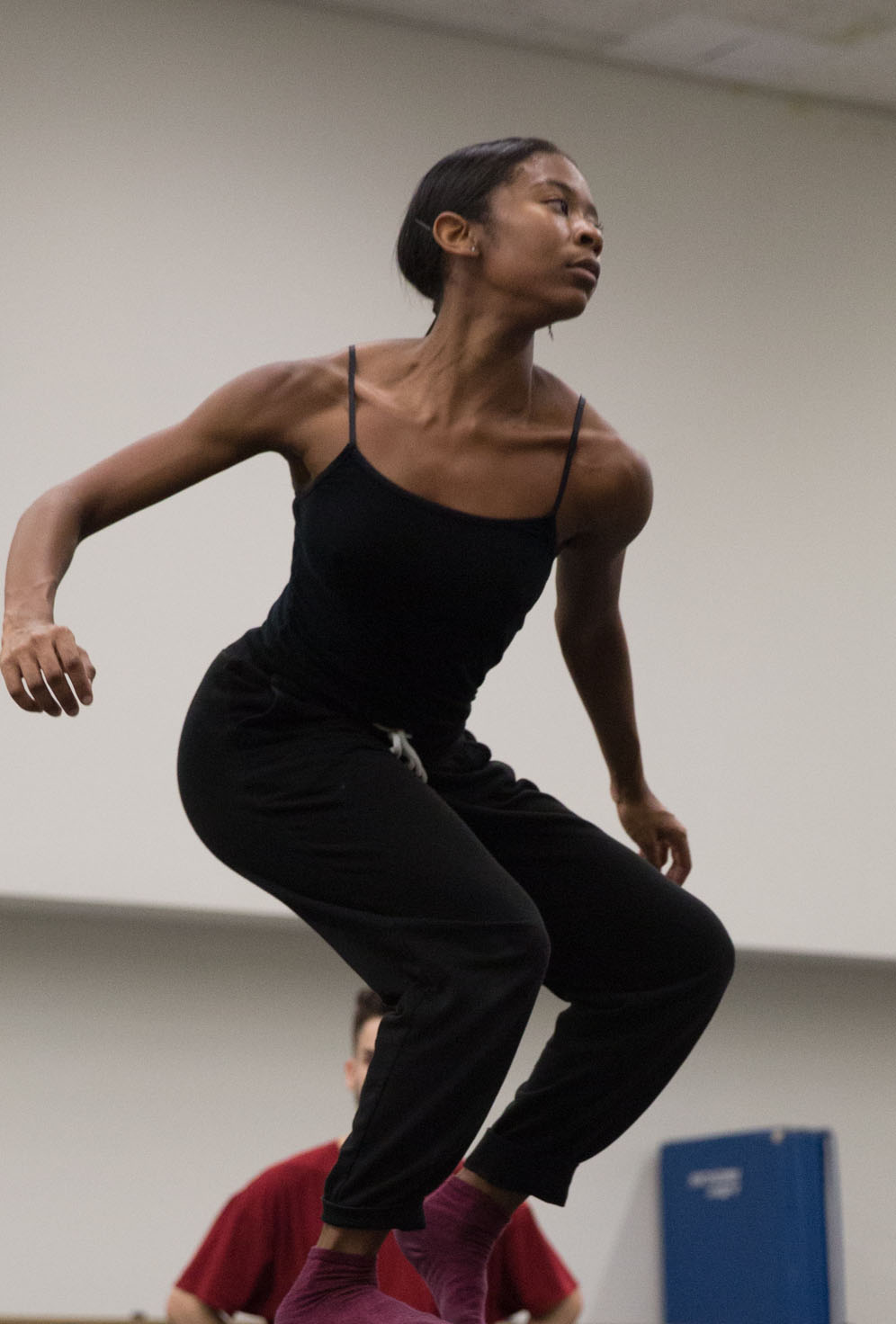
We got our first taste of these roles by designing the lights for ChoreoComp in November. As a dancer, I began to see that lighting can greatly contribute to the environment, setting, or journey of a piece. To be part of a process in this way was pretty cool.
Mikey Garcia: We were also the crew behind all eight student choreographic workshops throughout the school year. Our roles shifted from dancer to stage manager, sound operator, etc. In addition to running the show backstage, we also engage in a preparatory period in which we set up the Willson Theater for the performance. We acted as electricians—working in teams to hang and install the lights, and also as lighting designers—designing and programming cues for each piece.
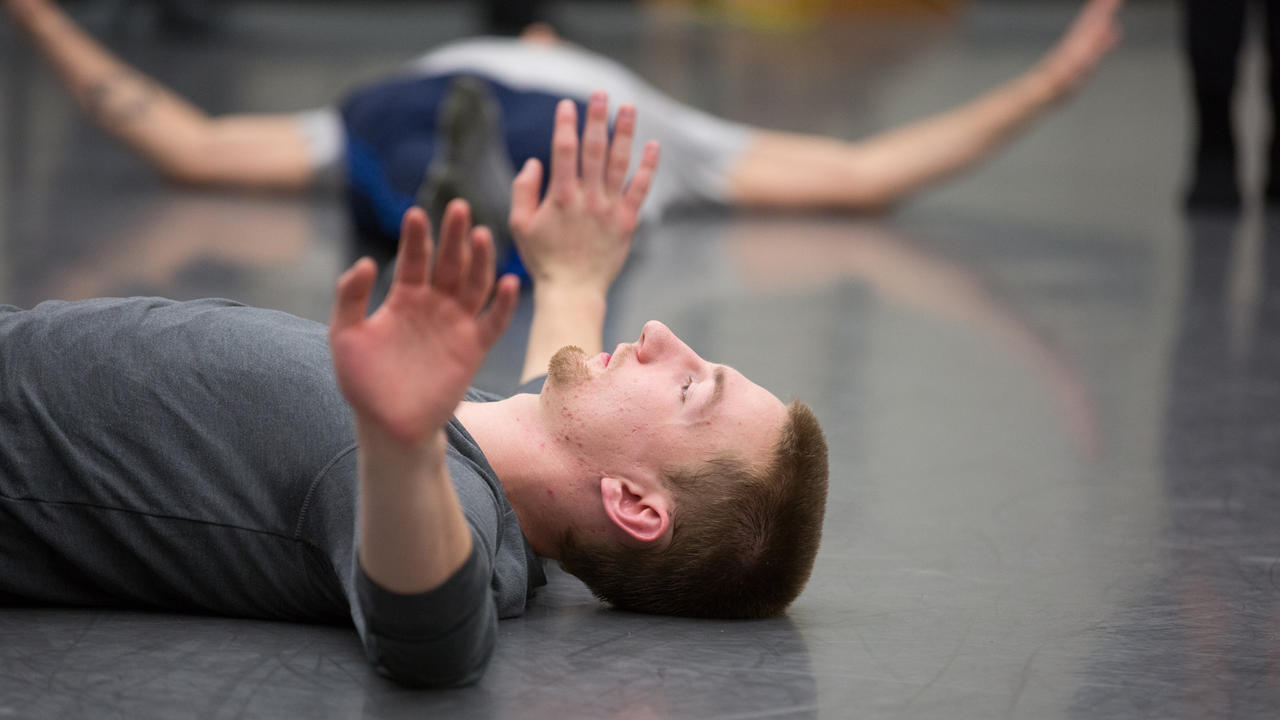
Every detail was discussed
MG: From budgeting and marketing to choreography and costuming, the seniors create and produce an evening-length dance performance, which is no simple undertaking. It’s been incredible to watch as a full show they create from scratch.
BS: In our senior year, we take a class that helps us engage in the process of organizing and funding Senior Pro. Earlier in the year, we created and sold a calendar to raise funds for the many expenses of putting on a dance performance. As we planned the calendar, we grappled over theme, vision, imagery, budget, wardrobe—everything down to the details of the location and who would bring snacks. Every detail was discussed, each opinion was weighed, and thus the product is an emblem not only of our class but also of our ability to communicate and present our passion.
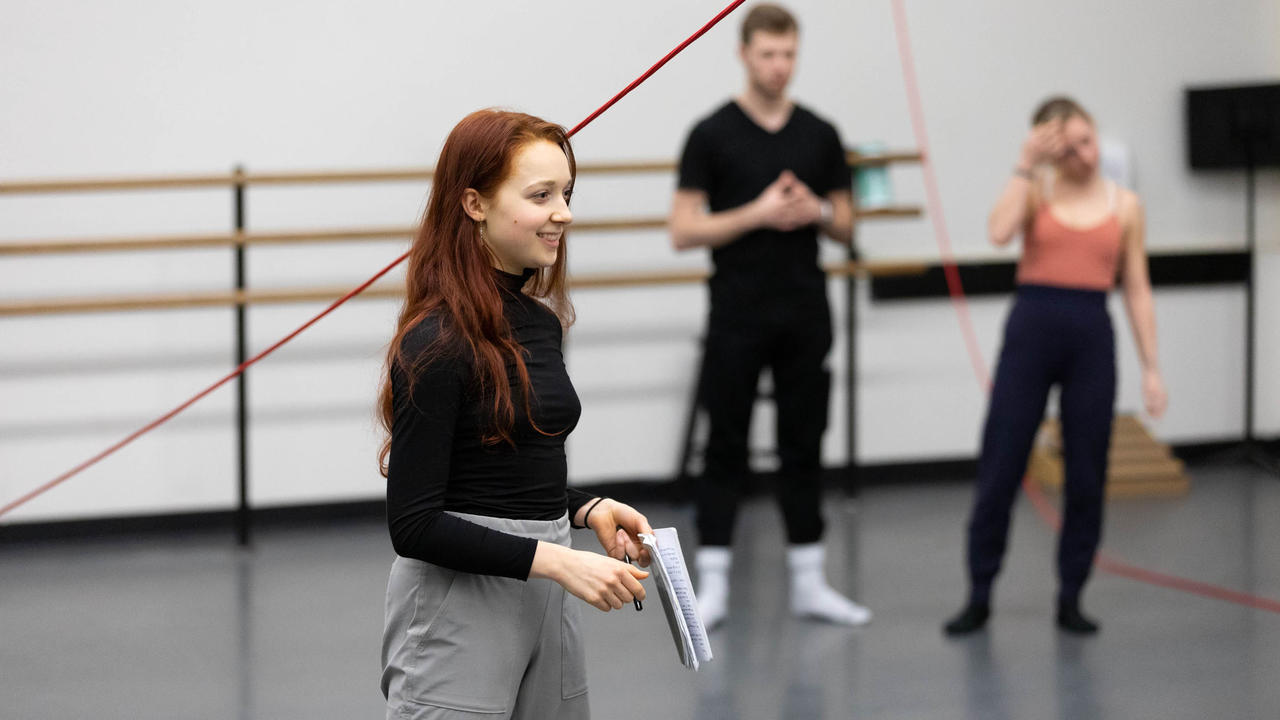
Creating the dances
Moscelyne ParkeHarrison: The seven pieces we create feature original sets and costumes as well as original choreography performed by juniors and seniors.
MG: We work intensively in the studio for six weeks, working with a choreographer from the senior class to create an entirely new piece. Part of what makes dancing in Senior Production so special is that you’re a part of the piece that marks a student choreographer’s culmination at the school.
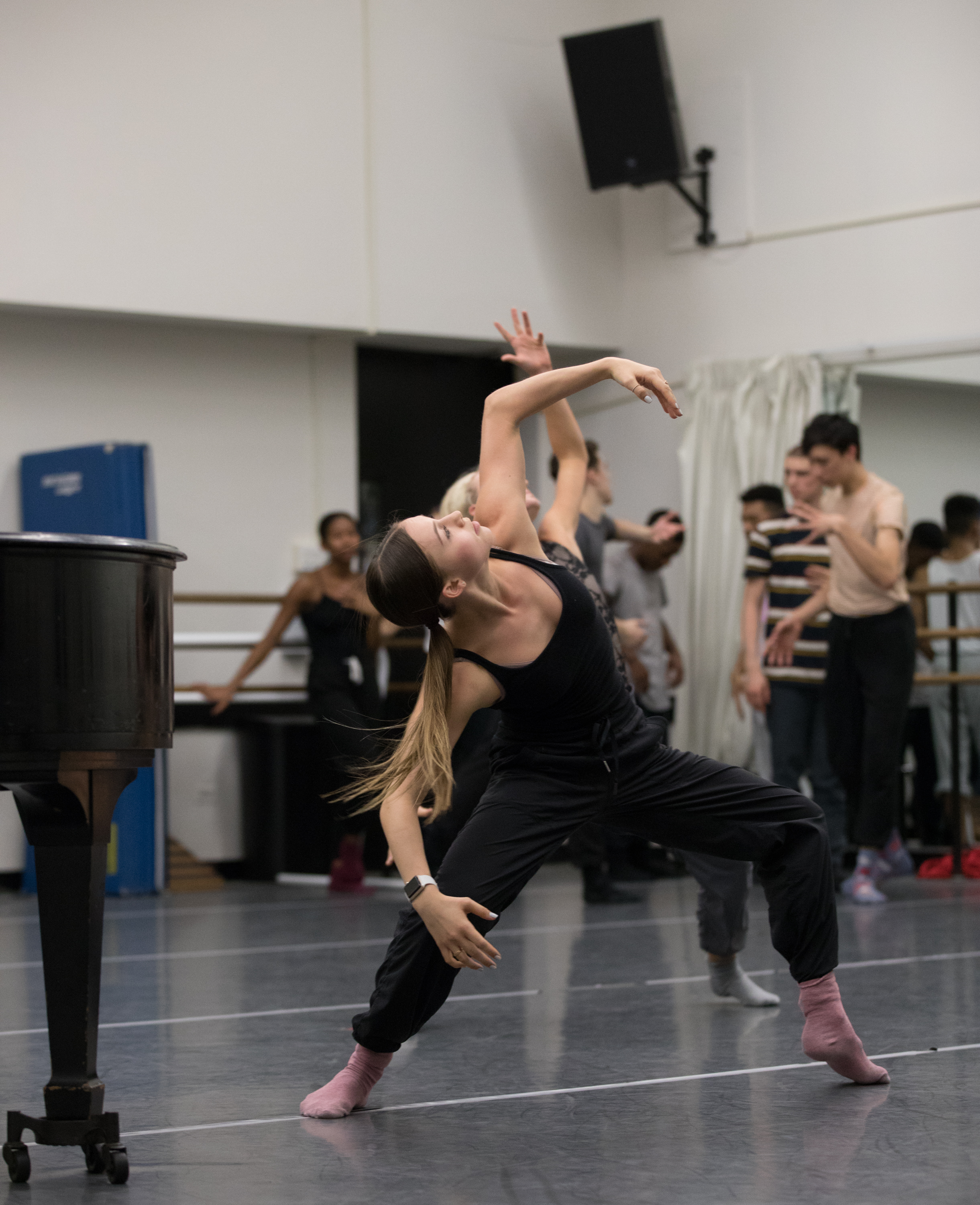
NL: I love how much of a collaborative process generating movement has been. [For our piece], we all were given the same task list, and it was interesting to then see the same set of tasks interpreted in a variety of ways. Seeing other people’s pieces in the initial showing was exciting, and I appreciated how the dancers brought us into the world and/or conversation that they were creating.
MP: As the year has unfolded, I’ve begun to realize that what takes place in the studio and onstage is only a small part of what goes into making a show. The studio work is extremely important, yet the power dynamic of choreographing a piece is much different than the intense teamwork that’s involved in the show production. I love to have the dancers’ input, but while I like to create in a collaborative way, at the end of the day, I make the executive decision as to whether or not something stays in the dance.
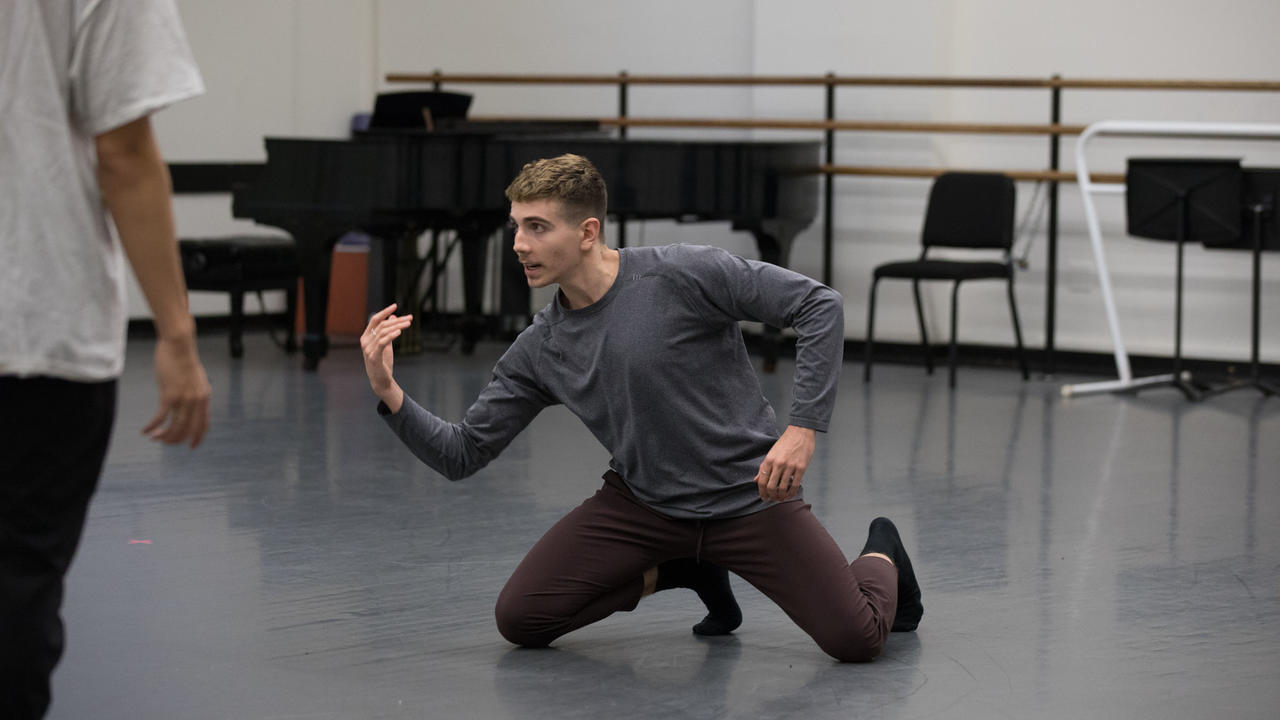
Community and teamwork
KB: As a dancer it’s easy to get invested in your role and forget there’s a whole team working together to bring the piece to life. Learning stagecraft has made me more aware as a performer. There’s so much hard work, dedication, and concentration that goes into stage production. I had never fully registered in the past that these jobs backstage—which can often be just as high stakes as dancing—are crucial in the overall presentation coming to life.
MG: As the dance world continues to evolve into more self-produced and project-based work, I think that experiencing the intricate details of production while at school is crucial to understanding how to launch our ideas into the postgraduate world.
BS: I found an amazing sense of community and teamwork in the Senior Pro process. Each element has made me realize the value of compromise and the importance of collaboration.